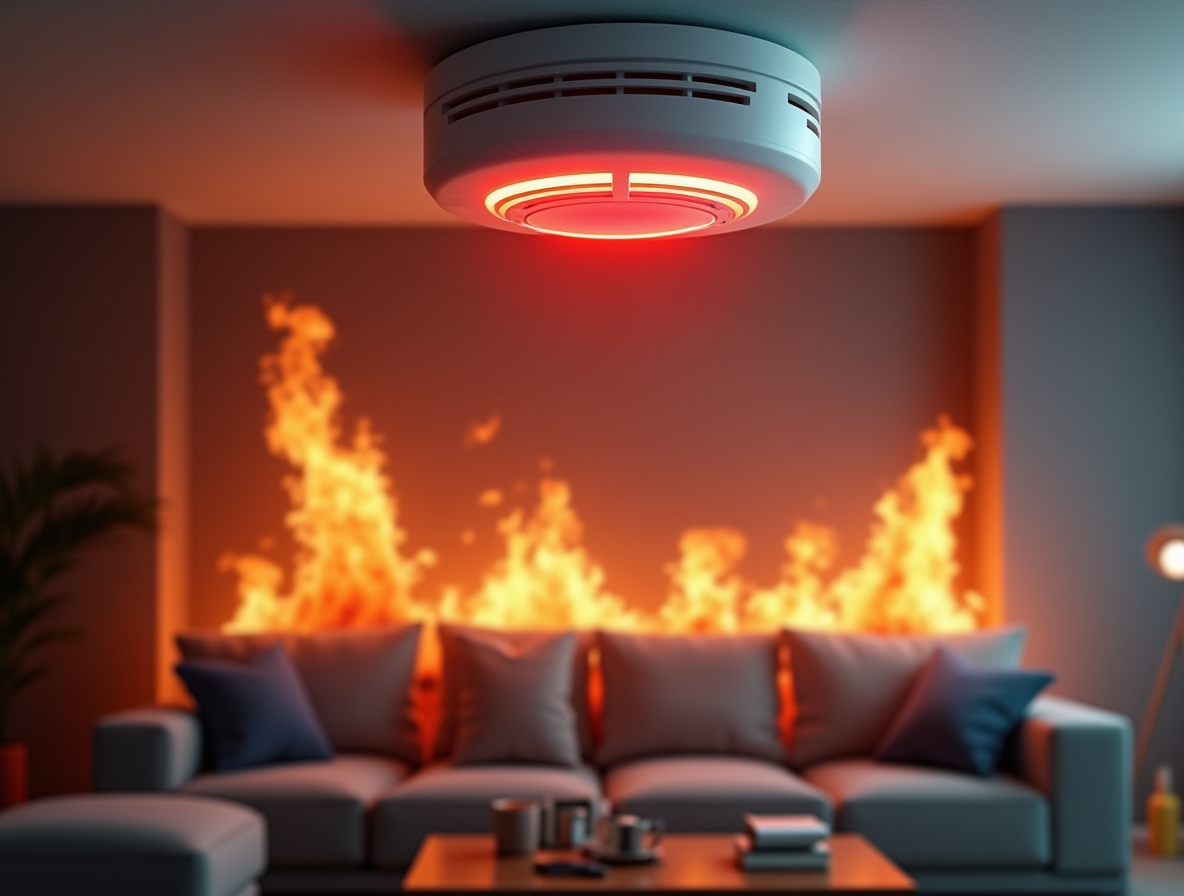5 Surprising Fire Alarm Beeping Mistakes You’ll Avoid Forever
Fire alarm beeping at 2 a.m.? Frustrating. Ignoring it? Dangerous.
Smoke detectors and fire alarms are essentials for every home and property, yet their persistent fire alarm beeping can annoy and confuse even the most safety-conscious homeowner. But here’s the thing—those beeps are not random sounds intended to disrupt your Netflix binge. They’re critical alerts meant to save lives.
This guide dives into the five most common mistakes people make when dealing with fire alarm beeping. From low battery warnings to sensor malfunctions, we’ll explain why your fire alarm beeps, what it means, and how to fix it. With practical tips and expert advice, you’ll ensure your fire safety devices stay in peak condition while keeping your home secure.

Why Is Your Fire Alarm Beeping (And Why Should You Care)?
When fire alarm beeping occurs, it’s like your home’s way of saying, ‘Something needs your attention, now!’ Whether it’s a low battery warning or a sign of a faulty sensor, ignoring the noise could cost you more than just a good night’s rest. Functional fire alarms are your first line of defense against potential fire hazards, so those chirps should never be overlooked.
Here are five common mistakes people make when dealing with their beeping fire alarms and how to fix them once and for all.
1. Ignoring the Beep

Why it’s a mistake:
That chirping noise might seem like a minor inconvenience, but overlooking it can lead to much bigger issues. For instance, a persistent beep often signals a low battery, which, if ignored, leaves your alarm unable to alert you in the event of a fire.
How to avoid it:
- Acknowledge the beep immediately, even if it occurs at an inconvenient time.
- Regularly test your fire alarms to ensure they’re functioning properly. Aim for monthly tests.
Real-Life Example:
A homeowner once ignored intermittent fire alarm beeping, assuming it was a false alarm. Turns out, the battery had completely died. Days later, a kitchen fire occurred, and the alarm failed to sound, leading to thousands of dollars in property damage.
💡 Pro Tip: Keep spare batteries specifically for fire alarm beeping, so you can replace them immediately when needed.
2. Failing to Replace Batteries

Why it’s a mistake:
Nearly 25% of smoke alarm failures are due to dead batteries. It’s easy to forget about these devices—until they need you in an emergency.
How to avoid it:
- Replace your alarm batteries at least once a year, even if they still seem functional. Mark the date on your calendar or set a reminder.
- Replace batteries as soon as you hear a low-battery warning sound (usually a short, intermittent chirp).
Battery Replacement Tips:
- Use high-quality, long-lasting batteries to avoid frequent replacements.
- For hardwired alarms with backup batteries, ensure you still check and replace the backup battery annually.
3. Silencing Without Investigating

Why it’s a mistake:
When fire alarm beeping happens randomly, many people silence them without addressing the real issue. While this might stop the noise temporarily, the underlying problem remains unsolved—and possibly dangerous.
How to avoid it:
- Always identify the cause of the beeping before silencing the alarm.
- Familiarize yourself with different alarm beeping patterns and what they mean. For example, one beep every 30 seconds often points to a low battery, while continuous beeping can indicate smoke or carbon monoxide detection.
Expert Tip from a Safety Specialist:
“Functioning fire alarms save lives. Don’t just stop the noise—fix the issue. Silencing your alarm without investigating is like hitting snooze on an emergency.”
4. Neglecting Routine Maintenance

Why it’s a mistake:
Dust, debris, and even insects can interfere with your fire alarm’s beeping sensors, causing false alarms or persistent beeping. Over time, these issues can render the alarm unreliable.
How to avoid it:
- Clean your fire alarms every 6 months. Use a soft brush or compressed air to remove dust and debris.
- Test your alarms regularly to ensure they’re working (and don’t forget to reconnect them afterward).
Real-Life Case:
A property manager noticed constant false alarms in one of their units. Upon inspection, they found the sensors clogged with dust. Regular cleaning avoided further malfunctions and restored reliability.
5. Forgetting to Check Interconnected Alarms

Why it’s a mistake:
If you have interconnected fire alarm beeping, a single faulty unit can trigger beeping in all connected alarms. Many homeowners waste hours trying to troubleshoot the wrong alarm.
How to avoid it:
- Inspect all alarms in your interconnected system to identify the source of the problem. Start with the alarm nearest to the beeping sound.
- Make sure your interconnected alarms are properly wired and communicating with each other. Test the entire system after any troubleshooting or repairs.
Quick Tip:
If troubleshooting fails, call in a professional to inspect your fire alarm system. It’s better to be safe than sorry.
💡 Pro Tip: Label each of your alarms with a simple location tag (e.g., “Living Room” or “Hallway”) to make identification quicker.
Fire Alarm Maintenance Cheat Sheet

Here’s everything you need to do for a beeping-free fire alarm system:
- Test your fire alarms monthly.
- Replace batteries annually.
- Clean alarms every 6 months to remove dust/debris.
- Familiarize yourself with beeping patterns for quick troubleshooting.
- Inspect interconnected alarms periodically.
- Never silence an alarm without investigating first.
Take Action for a Safer Home

Your fire alarms do more than just beep—they save lives. By understanding the causes of fire alarm beeping and avoiding these five common mistakes, you’re taking a major step toward protecting your home or property.
If your alarm is still misbehaving despite your best efforts, don’t hesitate to contact a professional for help. Whether it’s a sensor malfunction or wiring issue, it’s always better to address potential hazards sooner rather than later.
Remember, regular maintenance and prompt attention can make all the difference when it comes to fire safety. Start today—your future self will thank you!




